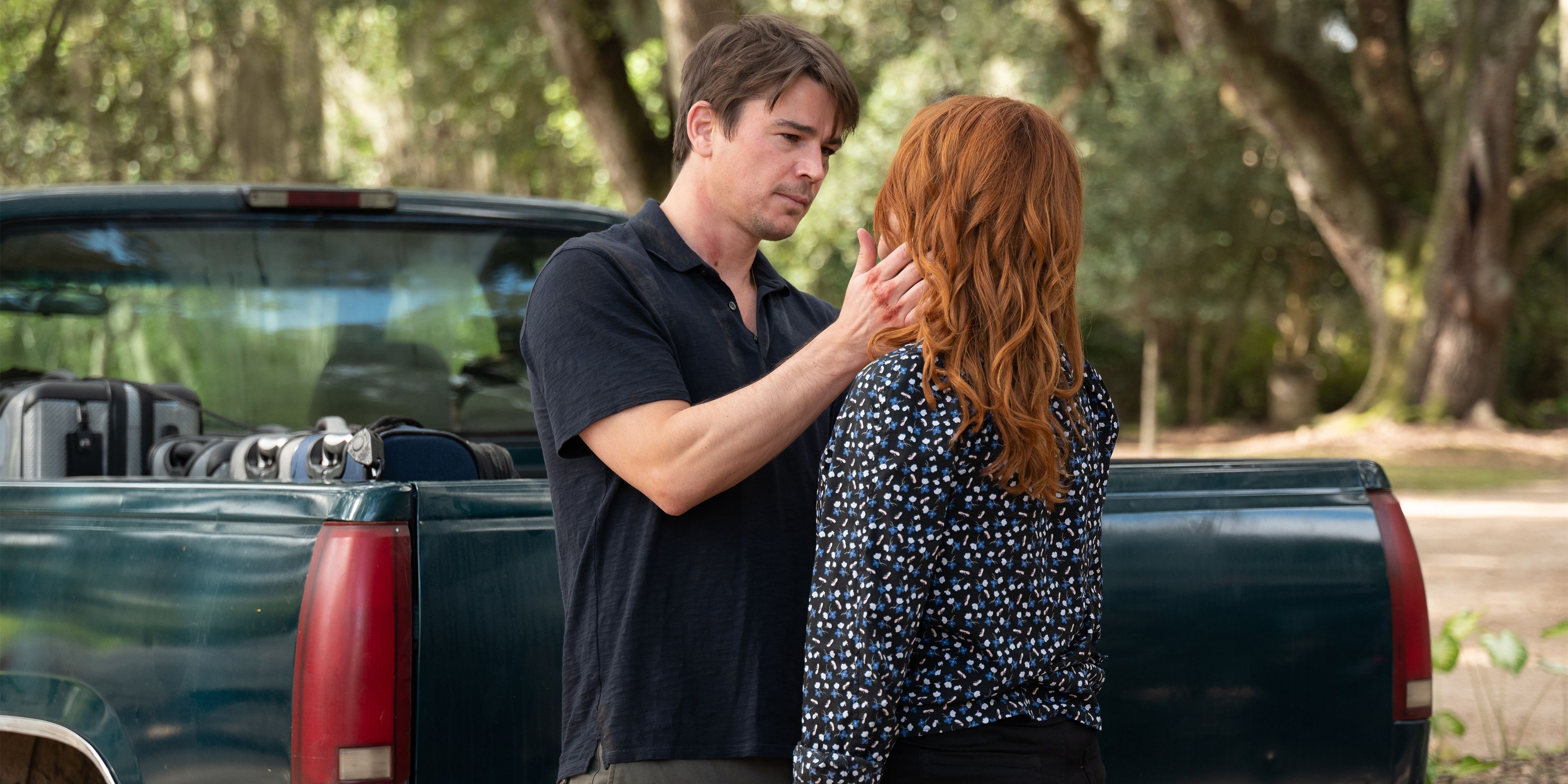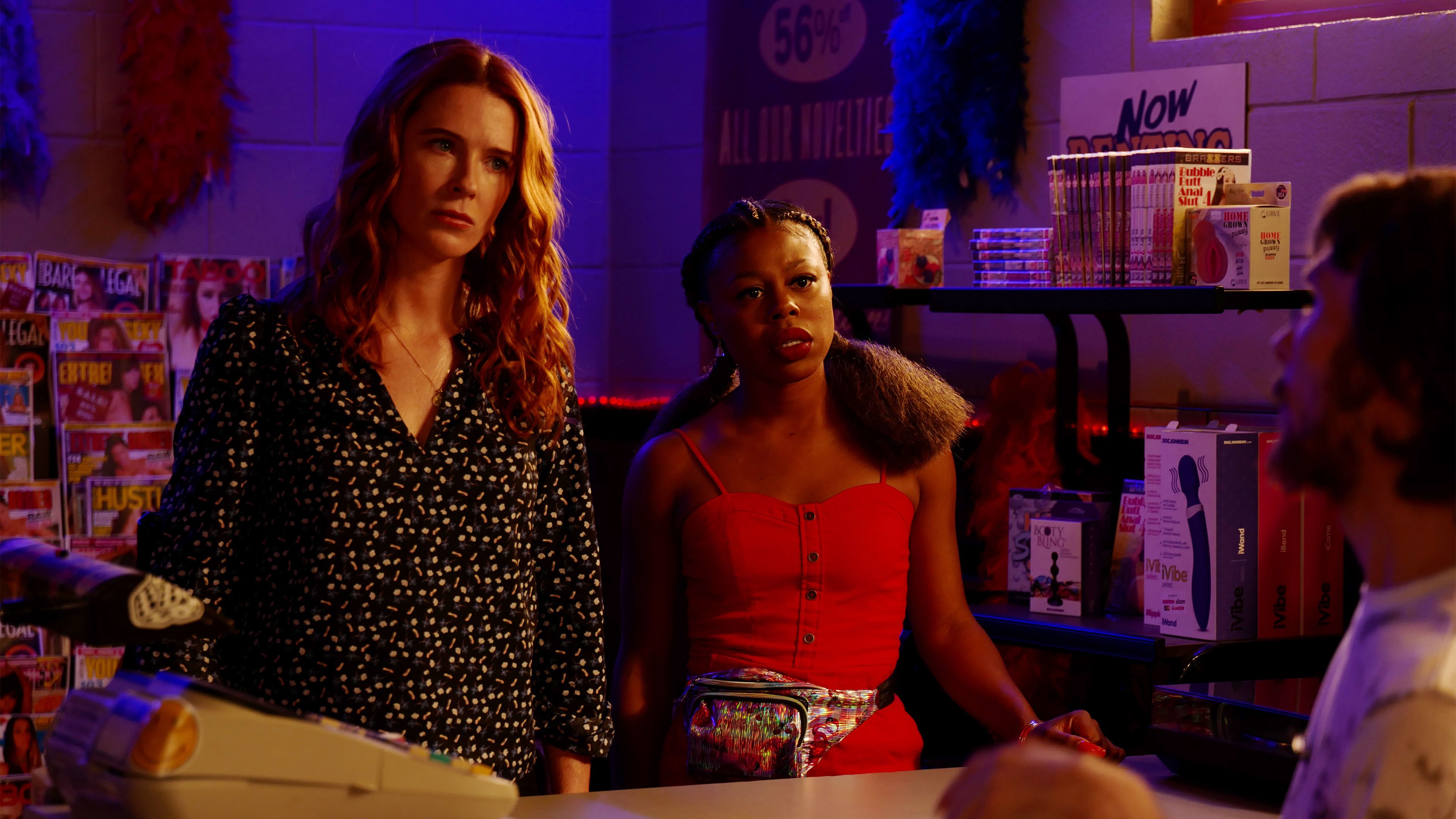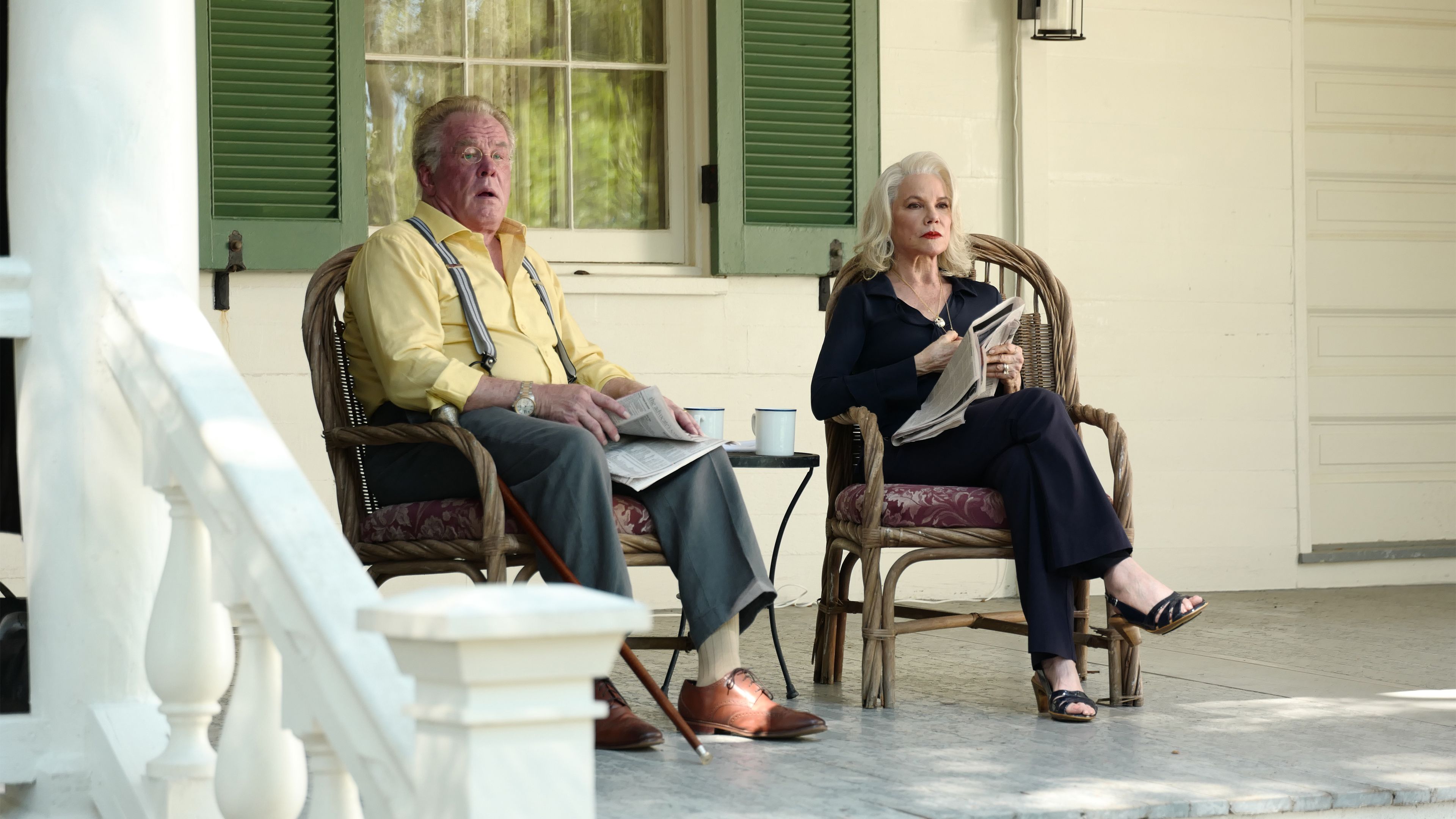There is an endless supply of small towns with dark secrets in movies and TV series, which means that any new story about uncovering the seedy underbelly of a seemingly placid community needs a strong hook to distinguish itself. On top of that, there are now so many slow-burn mystery series on TV taking an entire season to solve a single long-buried crime, that any show presenting its own prolonged crime-solving narrative needs to make each reveal and red herring as compelling as possible. Paradise Lost, the latest original scripted series from the Spectrum cable system, fails on both accounts, centering on a generic town full of generic secrets that are tediously uncovered one tiny clue at a time.
The person doing most of the uncovering is psychiatrist Frances Forsythe (Bridget Regan), who has just moved to the sleepy town of Bishop, Mississippi, with her husband Yates (Josh Hartnett) and their two sons. Yates grew up in Bishop, where his father (Nick Nolte), known only as the Judge, is one of the town’s most powerful citizens, owner of a media conglomerate that encompasses 18 newspapers and 36 radio stations. After some unspecified failures in California’s Bay Area, Yates has returned home to take over as CEO of Southern Trees Media, although he doesn’t seem to have much authority, and his job mostly involves running the surprisingly well-staffed local newspaper in Bishop.
Almost immediately, Frances is drawn into a pair of mysteries, connected by her only patient, an unhinged veteran named Boyd Suttree (Silas Weir Mitchell). In his younger days, Boyd was friends with Yates and Dickie Barrett (Shane McRae), who’s now the local sheriff, and Yates and Dickie clearly did some bad things as teenagers, possibly involving Yates’ sister Janus. Janus was a troubled artist who died young, leaving behind a body of work that has apparently become extremely valuable. She also may have had an incestuous relationship with Yates (which has become lazy TV shorthand) and possibly also supernatural powers of some sort, although the show offers only vague hints of those in its first five episodes.
Boyd was also present (during his time as a firefighter) at a motel fire two decades ago, a mystery Frances isn’t the only one looking into. Reporter Nicque Green (Danielle Deadwyler) is convinced that her uncle, who was convicted of starting the fire, is innocent, and she enlists her sister Gynnifer (Gail Bean) to use her position as Frances’ assistant to spy on Boyd’s therapy sessions. Five episodes in, the details of these mysteries (and how they relate, or don’t relate, to the Forsythe family history and Janus’ death) are still mostly unclear, and the dialogue is full of portentous-sounding nonsense that doesn’t convey any useful information.
The plot doesn’t necessarily have to be riveting if the characters are well-drawn and the setting is evocative, but Paradise Lost’s characters are mostly one-dimensional, and Bishop is an unremarkable Southern small town hostile to outsiders like Frances. Regan gives an earnest if somewhat dull performance as Frances (she’s been better in villainous roles on shows like Jane the Virgin and Marvel’s Agent Carter), and Hartnett is mostly on autopilot as Yates, who’s theoretically torn between his progressive California values and the pull of his old-fashioned hometown. Nolte rasps his way through brief appearances as the town patriarch, and Barbara Hershey is wasted as Yates’ mother Bird, who shows up even more briefly than the Judge does.
All the mysterious obfuscations makes it tough for the show to settle on a villain, although the loudmouthed, violent, sexist Dickie comes closest. With his constantly greasy hair and perpetually unbuttoned shirt (revealing a white tank top beneath), Dickie is the embodiment of Southern chauvinism, and he’s condescending and threatening to Frances and Nicque. He’s even worse when it comes to Boyd, who is an absurd combination of plot device and punching bag, played with maximum twitchiness by Mitchell, who specializes in oddball characters like this.
Bishop is the kind of pseudo-folksy town where the local restaurant is called Doxie’s Eating Place, and literally every character is entangled in a sinister conspiracy. The show establishes the location via the same handful of drone shots of swampland in every episode, and the town seems to expand or contract to fill the plot’s needs (somehow there is an adult store on the outskirts, run by a mustachioed clerk who is, of course, full of secrets).
There’s some half-hearted effort at social commentary via the contrast between African-American sisters Nicque and Gynnifer's quest for justice for their wrongly convicted uncle and the white good-ol’-boys network represented by Yates and Dickie, who may have gotten away with murder. But the show isn’t sophisticated enough to make incisive political points (an argument between Yates and the Judge over Donald Trump is similarly toothless), and it quickly falls back on ominous semi-reveals instead.
The meager cliffhangers in each episode aren’t enough to entice binge-watchers, although the entire season will be available to watch at once. As the show stingily doles out one little clue at a time, the best solution would probably just be to skip to the last episode and see if it ever amounts to anything.
Starring Bridget Regan, Josh Hartnett, Danielle Deadwyler, Gail Bean, Shane McRae, Barbara Hershey and Nick Nolte, the 10-episode first season of Paradise Lost debuts April 13 on Spectrum.



